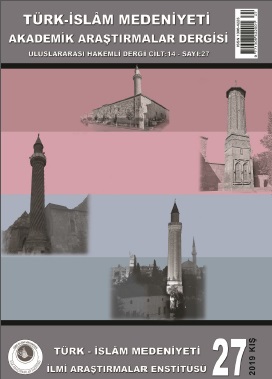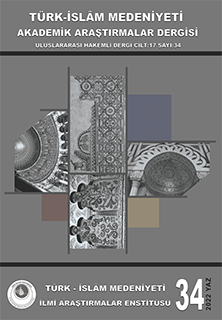Significance of Hebrew in Judaism as A Language of Liturgy
Keywords:
Judaism, Hebrew, Language of Liturgy, Torah, SaSacred and Religious ValuesAbstract
Hebrew is a very significant place in Judaism. According to Jews, Hebrew is the language of liturgy of Judaism, and devotion to the Hebrew language is one of the pillars of Jewish life, because throughout history the Jewish nation faced many exiles and despite these negative circumstances the Hebrew language has enabled them to survive. In this work, we will try to examine what Hebrew means in terms of modern-day Jewish denominations (Reform Judaism, Orthodox Judaism, and Conservative Judaism). In doing so, we shall first touch upon the classical point of view of the Orthodox Jews who regard themselves as the representative of Rabbinic (classical) Judaism. Then we will try to discuss what Hebrew means in terms of Reform Judaism and then Conservative Judaism, who debate between themselves. Because of all these aspects, regardless of which group, Hebrew has a great value for the Jews. This is why especially religious Jews teach their children the language of Hebrew at a very early age and try to help them memorize the Torah. This shows us the significance of the Hebrew language, which is the language of liturgy and therefore considered sacred for the Jews.
References
ADAM, B., 2010, Yahudi Kaynaklarına Göre Tevrat, Pınar Yayınları, İstanbul.
AYDIN, M., 2005, Ansiklopedik Dinler Sözlüğü, Din Bilimleri Yayınları Damla Ofset A.Ş., Konya.
AYTAÇ, B., 2009, İbranice’nin Yeniden Doğuşu, Dil Dergisi, Cilt: 139, s:25-35.
BAŞARAN, İ., 2017, Muhafazakar Yahudilik, Arı Sanat Yayınevi, İstanbul.
BESALEL, Y., 2001, Yahudilik Ansiklopedisi (3 Cilt), Gözlem Gazetecilik Basın ve Yayın A.Ş., İstanbul.
BRIDGER, D., 1962, The New Jewish Encyclopedia, Behrman House, New York.
COHEN, H. A., 1965, A Basic Jewish Encyclopedia, Hartmore House, Hartford.
COHN–SHERBOK, D., 2010, Yahudiliğin Kısa Tarihi, (çev. Bilal Baş), İz Yayıncılık, İstanbul.
FINKELSTEIN, L., 1970, The Jews: Their History, Jewish Publication Society of America, New York.
GILLMAN, N., 1993, Conservative Judaism: The New Century, Behrman House, Inc., New Jersey.
GORDIS, R., 1966, Judaism In A Christian World, McGraw-Hill Book Company, New York.
GÜRKAN, S. L., 2016, Ana Hatlarıyla Yahudilik, Türkiye Diyanet Vakfı Yayınları, Ankara.
GÜNDÜZ, Ş., 1998, Din ve İnanç Sözlüğü, Vadi Yayınları, Konya.
HASAN, J. H., 2000, Türkiye Diyanet Vakfı İslam Ansiklopedisi, "İBRÂNÎCE", Cilt: XXI, s:366-367, İstanbul.
Kitabı Mukaddes, 1976, Kitabı Mukaddes Şirketi, İstanbul.
KLING,S., 1987, Embracing Judaism, The Rabbinical Assembly, New York.
KURT, A. O., 2006, İkinci Mabed Dönemi Yahudiliğine Genel Bir Bakış, Cumhuriyet Üniversitesi İlahiyat Fakültesi Dergisi, X/2, s:437-454.
SACHAR, H. M., 1957, The Course of Modern Jewish History, Dell Publishing Co., New York.
SCHECHTER, S., 1896, Studies in Judaism, The Jewish Publication Society of America, Philadelphia.
SIEGEL, S., 1977, Conservative Judaism and Jewish Law, The Rabbinical Assembly, New York.
ÜNAL, A. – KARATAŞ H., 2012, Bütün Yönleriyle Yahudilik, Dinler Tarihi Araştırmaları-VIII, Türkiye Dinler Tarihi Derneği Yayınları, Ankara.
WIGODER, G., 1989, The Encyclopedia of Judaism, Macmillan Publishing Company, New York.
Web Siteleri:
http://www.sevivon.com/index.php?option=com_content&task=view&id=1366 erişim: 31.08.18
Downloads
Published
How to Cite
Issue
Section
License

This work is licensed under a Creative Commons Attribution-NonCommercial 4.0 International License.







